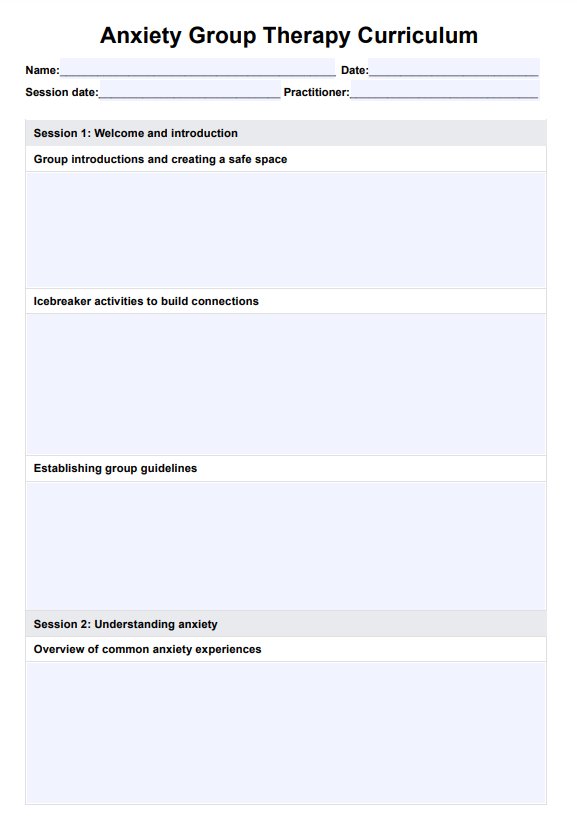The materials are designed for mental health practitioners, counselors, therapists, or educators conducting group therapy sessions on anxiety management.

Anxiety Group Therapy Curriculum PDF
Download a free Anxiety Group Therapy Curriculum PDF template. Streamline your group therapy sessions with this printable resource.
Use Template
Anxiety Group Therapy Curriculum PDF Template
Commonly asked questions
The template is versatile and suitable for in-person or distance learning students, allowing customization based on group dynamics.
Structured lessons, coping skills, and anxiety management resources, incorporating CBT and DBT elements. It also provides student attendance records, lesson schedules, and adaptations for online work.
EHR and practice management software
Get started for free
*No credit card required
Free
$0/usd
Unlimited clients
Telehealth
1GB of storage
Client portal text
Automated billing and online payments











